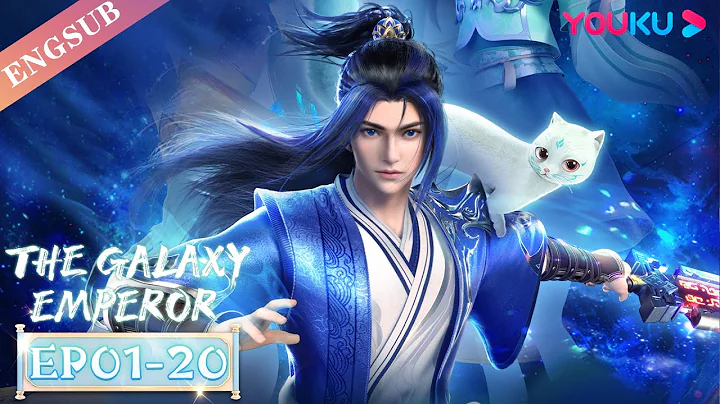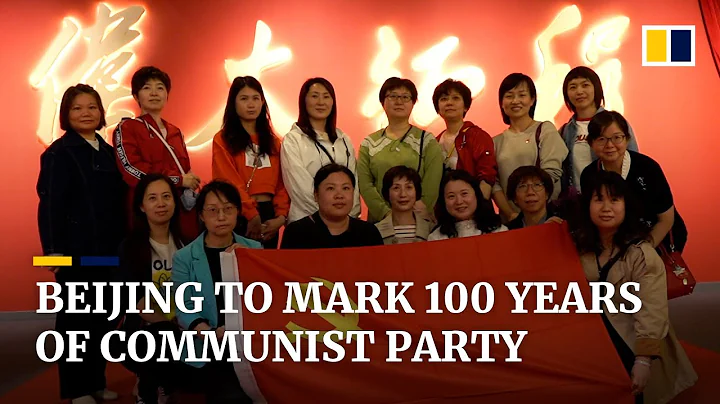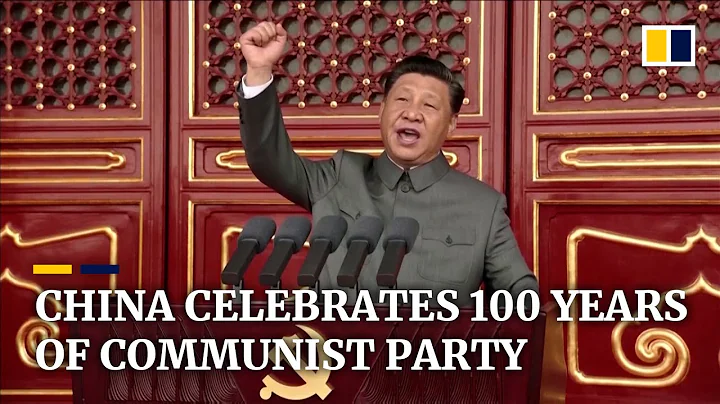
In 1937, Yan Xishan met Premier Zhou for the first time.
At that time, Premier Zhou asked Yan Xishan: "If the Japanese attack here, how are you going to fight?"
Yan Xishan immediately replied: "I will risk my life to save Shanxi."
Later, Yan Xishan as He did what he said, and the first thing he did after the battle was to order the soldiers to dig into the pockets of the Japanese soldiers.
So, why did he first let the soldiers dig into the pockets of the Japanese soldiers' trouser pockets instead of picking up weapons? What was in the pockets of the Japanese soldiers that Yan Xishan valued so much?

The Japanese army suddenly broke into Shanxi, and Yan Xishan decided to unite to resist the Japanese.
This matter can only be discussed in 1912.
Yan Xishan was appointed governor of Shanxi. Yan Xishan went to his hometown in Shanxi to take up his post. This trip lasted 38 years.
As soon as he took office, Yan Xishan adopted a neutral attitude and did not join any team.
Subsequently, under the governance of Yan Xishan, Shanxi briefly experienced a security situation.

Yan Xishan also became the "Tu Emperor" of Shanxi and monopolized the power of Shanxi.
After becoming the emperor of Shanxi, Yan Xishan's ambitions became more and more inflated.
He had long been dissatisfied with the power of the province in front of him, so he began to build arsenals, expand the army, and established the Shanxi-Sui Army.
While Yan Xishan was dreaming of expanding his territory and strengthening his army, the footprints of the Workers' and Peasants' Red Army appeared in the northern Shaanxi area, just across the river from Shanxi Province.

The Red Army is actively mobilizing personnel wherever it is located to defeat the local tyrants and evil gentry, which has gradually expanded the ranks of our army.
And Yan Xishan across the river is the big landowner that the Red Army calls, and naturally becomes a hostile party.
In order to protect his status and power, Yan Xishan wanted to block the arrival of the Red Army along the Yellow River and built many military protection projects.

But what Yan Xishan did not expect was that the Red Army broke through the military defense line overnight, crossed the Yellow River, and headed straight for Yan Xishan's lair.
After more than a month of fighting with the Red Army, the Shanxi-Sui Army under Yan Xishan suffered consecutive defeats, and the Red Army also took advantage of the situation and occupied one-third of Yan Xishan's territory.
Just when Yan Xishan was extremely anxious, something happened that made him even more anxious.

He heard that a Japanese army marched all the way from the northeast and broke into Suibei. The Japanese army burned, killed and looted wherever they went. They committed all kinds of evil and were notoriously cruel.
Suiyuan is in the neighboring province of Shanxi, waiting for them to occupy Suiyuan.
The next step is to go to Shanxi, our home base?
As a result, Yan Xishan temporarily stopped fighting the Red Army.
Before, he thought the Red Army was a strong enemy, but now, he and the Red Army have a common enemy: the Japanese army.

The shrewd Yan Xishan also had another idea: The Red Army's bravery in combat could be used to fight the Japanese. By using this to consume the strength of the Red Army and the Japanese army, he could watch the tiger fight from afar and reap the benefits.
In order to protect his hometown in Shanxi, he took the opportunity to deal with his two opponents. Yan Xishan changed his past arrogant attitude towards the Red Army and established a united front of resistance against the Red Army with the Red Army.
Next, Yan Xishan has to consider how to fight the Japanese.

Yan Xishan ordered: After the attack, search the trouser pockets first.
In November 1936, Yan Xishan led the Shanxi-Sui Army to officially launch a counterattack against the Japanese army, and soon recovered Bailing Temple on the 24th.
Suddenly, the whole country celebrated the victory in the first battle.
At this time, Yan Xishan was sitting in the military tent and ordered his men: "Go and clean up the battlefield."
The soldiers were preparing to go down after hearing the order. Yan Xishan seemed to have thought of something. He stopped the soldiers, and arranged a task: "Wait a minute, clean up the battlefield, don't rush to collect weapons, and put all the trouser pockets of every Japanese devil Search it all over again, and you can’t miss anything. "

The soldiers were puzzled after hearing this, but due to Yan Xishan's majesty, they quickly agreed to withdraw from the camp.
Long before the Anti-Japanese War, Japan had been in constant war, and had fought for more than 100 years.
In order to win the war, , the Japanese introduced advanced weapons and technologies at the time, replacing broadswords with new weapons such as light machine guns and heavy machine guns . They also continued to improve their weapons.

Japan's combat effectiveness cannot be underestimated. Every time Japanese soldiers fight. Everyone strives to be a pioneer, and those who fail to become pioneers will have disputes and even commit suicide.
Looking at China, the seclusion of the Qing government has made the whole of China fall behind for more than 100 years.
Coupled with a series of inequalities signed by the Qing government. Treaty , the people live in water and fire every day, and have no time to take care of other things. This also leads to the fact that they are far behind Japan in terms of weapons and equipment.

Although Yan Xishan vigorously built arsenals in Shanxi, he still could not expand the army at the same time. Let all soldiers have sophisticated equipment.
In order to strengthen their own armed forces, many warlords will collect the weapons of the other party after the war.
But Yan Xishan's move not only did not collect the weapons immediately, but also allowed the soldiers to do so. Let's go through the Japanese army's trouser pockets first.

However, Yan Xishan's prestige was not just talk about having been in charge of Shanxi for so many years. Although the soldiers did not understand Yan Xishan's intentions, they still did it. Later, Yan Xishan's troops fought with the Japanese army. Many battles have been fought in Shanxi, and the soldiers under have long been accustomed to searching the Japanese trouser pockets first every time they clean the battlefield.
Unfortunately, Yan Xishan has not gained anything after so long.

The officers under him threatened that the equipment was more important.
This also caused Yan Xishan's soldiers to talk a lot, and the discussion also reached Yan Xishan's ears.
"Commander, your subordinates are now talking about you asking them to search the Japanese pants pockets. "
Yan Xishan stopped what he was doing and turned to look at the adjutant who entered the house.
Just when he was about to say something, another soldier ran in quickly from outside the house and reported loudly: "Commander Yan, guard General Lihuang is here. "

" Please come in. "
Yan Xishan showed a happy expression, hinting to the adjutant to discuss it later with his eyes, and quickly stood up to greet Li Lihuang.
Wei Lihuang was a senior officer under Chiang Kai-shek . After the outbreak of the Anti-Japanese War, Wei Lihuang came to Shanxi for support. , participated in and commanded the Xinkou Battle.
This was the most successful battle between the Kuomintang and the Communist Party. defeated more than 20,000 Japanese troops.
Wei Lihuang's return made Yan Xishan very happy. At this moment, Yan Xishan had forgotten what the adjutant had reported to him, and the adjutant did not let such trivial matters continue to disturb Yan Xishan until November 1937, when Taiyuan, Shanxi Province fell, and Yan Xishan was forced to leave Taiyuan and hurriedly evacuated to Linfen. .
His soldiers also began to become increasingly dissatisfied, and a long-standing complaint came to Yan Xishan.
Yan Xishan looked at the faces of the rows of soldiers in front of him, some were seriously injured and some were lying on stretchers. The clearing was full of anger, and everyone looked at him without blinking.

Yan Xishan did not speak, and suddenly a voice came up from below:
"Commander Yan, why did you order us to search the trouser pockets of the Japanese devils in the first place? There is nothing good at all after so long, and now they are still losing the battle. The Japanese devils Our hometown has been taken over! We might as well pick up the equipment first. "
" Our hometown has been taken over. Should we still blame each other and complain about it now? …”
The shrewd Yan Xishan did not directly answer the voice’s question, but instead shifted the question to Japan’s occupation of Taiyuan.
His fierce speech once again ignited the fighting spirit of the soldiers.

Study in Japan and found that the Japanese army likes to collect intelligence
After Yan Xishan boosted his morale, he returned to the house. He was thinking about how to take Taiyuan back.
At the same time, the adjutant walked into the room and said to Yan Xishan: "Commander, actually I am also curious about why you ordered a search of the Japanese's trouser pockets."
Yan Xishan did not answer the adjutant directly, but fell into a trap. Among the memories of studying in Japan.

It turns out that Yan Xishan failed in business in 1900. In order to avoid debts, he fled all the way to Taiyuan. It happened that the Army Academy opened by Shanxi Governor Hu Pinzhi was recruiting students.
Yan Xishan saw that there was no hope of doing business, so in order to make a future, he went to school.
In the end, Yan Xishan graduated with honors and was recommended by the Shanxi government to study in Japan.

After that, Yan Xishan entered the Japanese Army Non-commissioned Officer School and officially became a student in the sixth phase of the Army Non-Commissioned Officer School.
At that time, the Japanese Army Military Academy was the first higher military university in Japan.
Except for the Chinese who came to Japan to learn military knowledge, most of the soldiers who graduated here were senior Japanese generals in the subsequent Anti-Japanese War.
At that time, Yan Xishan’s instructor was Itagaki Seishiro. Itagaki Seishiro was an activist in the future war of aggression against China and was very concerned about the new Chinese students.

It was during this process that Yan Xishan became increasingly familiar with Itagaki Seishiro.
At the same time, he also met another person through the instructor's introduction-Doihara Kenji.
Yan Xishan looked at the young man in front of him with small eyes, thick lips, and a little baby fat, and shook hands with him.

Yan Xishan’s first impression of Doihara Kenji was that of honesty and duty, and he immediately felt good about him.
This also started the friendship between Yan Xishan and Doihara Kenji. Through Doihara Kenji, Yan Xishan got to know many Japanese people.
During the past few years in Japan, Yan Xishan did not spend his time on studying and admiring, but instead focused on socializing.
This gave Yan Xishan an extremely good understanding of the Japanese character. He knew very well that once the Japanese do something, they will become extra serious.

Seishiro Itagaki and Kenji Doihara, two typical Japanese, have one thing in common, that is, they served as senior officials of the Japanese military intelligence organization during the Anti-Japanese War.
In particular, Kenji Doihara has been engaged in intelligence work in China for about 30 years.
It is no exaggeration to say that behind every major historical event, there is his presence.

If and when they start coveting China's huge resources, they will definitely give priority to collecting intelligence.
The first step in collecting intelligence is to collect China's geography and terrain. How to draw a map is a required course on the battlefield.
After Yan Xishan finished recalling, he told the adjutant the reason: "Because of the military maps on them."

There were Chinese military maps in the Japanese army's trouser pockets.
The maps drawn by the Chinese at that time were not detailed, and the maps drawn by the Japanese were not detailed. The map is far more detailed than the one drawn by the Chinese.
If this location is of high importance, then every tree and room will be clearly marked.
The Japanese are more familiar with China's topography than the Chinese themselves. This is because the Japanese have long-standing ambitions for China and have conducted intelligence work on China very early.

Long before the Sino-Japanese War , the Japanese sent a large number of spies to China.
In 1906, Japan established a railway operating company , which was privately involved in many fields. It became the infamous Manchuria Railway Organization.
Intelligence workers of the Manchuria Railway Organization will change into Chinese clothes, or come to China as "Japanese ronin" and take many photos of China, including topography, landforms, customs, military, economy, etc.

Not only that, the Japanese will also record the personalities, hobbies, and living habits of Chinese officials one by one.
These Japanese spies have rigorous professional knowledge and are proficient in using Chinese dialects. They also bribe Chinese people to act as spies and collect intelligence for them.
Before the Anti-Japanese War started, Japan sent thousands of spies and intelligence personnel to China.
In order to better plunder China's resources, the Japanese established a special spy training base and trained batches of Japanese spies.

The criteria for selecting Japanese spies are also very simple. Personnel loyal to the Japanese royal family, soldiers who have a close relationship with the Japanese army, and those with bad conduct and criminal records are selected in the recruit camp.
After the spies have successfully completed training, will be dispatched to various anti-Japanese base areas, trying every means to obtain intelligence, conduct false propaganda, sabotage, and even kill anti-Japanese fighters in the local areas.
's more than 20 years of collecting intelligence and dispatching spies allowed the Japanese to master the detailed terrain of Northeast China, North China, East China and other regions, and draw many military maps.

Especially after the outbreak of the Anti-Japanese War, the map of China drawn by the Japanese army made the Japanese army even more powerful.
It was precisely because Yan Xishan knew this that he asked the soldiers to search the Japanese army's trouser pockets and find their military maps.
However, most of these military maps were placed on Japanese soldiers with higher status and position. Ordinary Japanese soldiers did not have permission to obtain the maps, which resulted in Yan Xishan not having much gain before.
After thinking about it, Yan Xishan took advantage of the fact that the identity of the Japanese with the map was not simple, designed a game to invite you to the urn, and successfully captured a senior Japanese official.

It’s just that Yan Xishan didn’t expect that the final outcome of things would not go according to his plan.
The power of the Red Army continued to expand, and he was reduced from controlling one province to only controlling a dozen small counties.
In order to restore his power to what it used to be, he began to play his golden mean again and turned around to collude with the Japanese.
In 1949, the Red Army occupied Taiyuan, Shanxi, and announced that Taiyuan had been liberated. Yan Xishan's 38-year control of Shanxi was canceled. In the end, he suffered the consequences and had to fly to Taiwan in a hurry.

Reference:
[1] "Those Things in the Ming Dynasty" Chapter 247 The Beginning of Ambition
[2] The American "Time" magazine in 1930 (Note: On May 19, 1930, Yan Xishan became the American "Time" "Cover Character of Weekly Magazine"
[4] "King of Shanxi: The Secret of Yan Xishan", "The Biography of Yan Xishan", "Critical Biography of Yan Xishan", "Report on Japanese Agents"
[5] Global Network: "Japan's Response to China's intelligence war has been planned for a long time. Thousands of spies sneaked into surveying and mapping before the war."
[6] Wencui Daily·Tuesday Edition 2020 Issue 39 "Yan Xishan loves to search the pockets of Japanese troops"




![✨Law of Devil EP 01 - EP 24 Full Version [MULTI SUB] - DayDayNews](https://i.ytimg.com/vi/aW_V-njnOSk/hq720.jpg?sqp=-oaymwEcCNAFEJQDSFXyq4qpAw4IARUAAIhCGAFwAcABBg==&rs=AOn4CLArut2vqv9WwHE6DZH131STZao5rQ)
![Eng Sub [The Great Ruler] Season 1 Collection - DayDayNews](https://i.ytimg.com/vi/E77PsgZEkBQ/hq720.jpg?sqp=-oaymwEcCNAFEJQDSFXyq4qpAw4IARUAAIhCGAFwAcABBg==&rs=AOn4CLAl8osCLRnB9rnsDaMWN3_ooUcRww)















